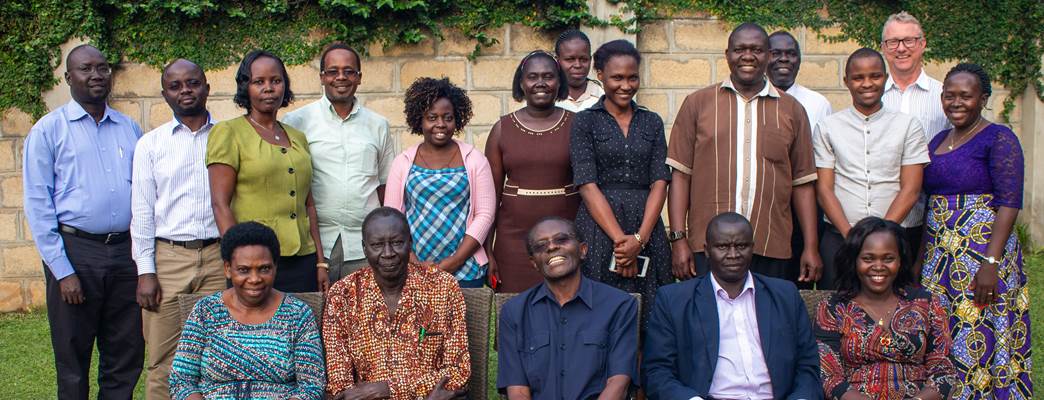NORHED in Uganda
Uganda is the largest recipient country in NORHED, with Ugandan academic partners participating in 21 of 60 projects. The projects in Uganda cover a broad range of thematic areas, including education; health; climate and natural resource; humanities and social sciences; and energy. Makerere University is by far the largest partner, but collaboration also includes other institutions such as Kyambogo University, Gulu University, Uganda Martyr’s University, Uganda Christian University, Makerere University of Business School, and the Uganda National Institute of Teacher Education.
One of the projects in Uganda is the Survival Pluss project aimed to improve mother-baby survival rates in post-conflict areas. The Embassy had the privilege of interviewing Professor Thorkild Tylleskär from the Centre for International Health at the University of Bergen. Tylleskär is the Norwegian Partner lead on the Survival Pluss project and shared with us information about the project and the progress made.
Higher education for lower maternal and child mortality rates
Over the years, South Sudan and Northern Uganda have grappled with high rates of illnesses and mortality rates among mothers and infants. There has been a shortage of healthcare professionals specialized in maternal and child health. The Survival Pluss project aimed to improve the capacity of healthcare in these areas through teaching and research at higher education institutions. In Uganda, the project included two young public universities, Gulu University and Busitema University, both chosen for their need to increase staff capacity and for their geographic proximity to regions where maternal and child mortality rates were notably high.
The initial phase of the project involved personnel training to assure that the Universities had adequate teaching staff to administer and teach master's programmes. The universities collaborated with Makerere University and University of Bergen as anchor institutions. The goal was to start a master's program in paediatrics at both Busitema University and Gulu University.
The master’s program in pediatrics at Busitema University managed to start before the project ended. At Gulu University, the master’s program was not approved at national level before the project ended due to too few PhD-qualified staff.
Breakthrough after program conclusion
A significant breakthrough occurred this spring when Dr Beatrice Odonkara, (pediatrician) completed her PhD, entitled "Small newborns in post-conflict
Northern Uganda". After this, Dr. Odonkara was appointed Head of Department Paediatrics and Child Health at the University of Gulu and with this addition, the master’s program in pediatrics at Gulu University was given a go-ahead.
The impact of the Survival Pluss project is evident in the increased capacity and competence, with several new PhDs at Busitema University and Gulu University. Busitema is now launching a second master's program, this time in obstetrics and gynaecology, alongside the existing program in pediatrics.
Educational development is a fundamental driver of progress. However. it often takes time to see substantial outcomes, with results sometimes materialising after the project periods are completed. The Survival Plus project is one such example as the project was part of the NORHED I, but results continue based on the work in the project. These accomplishments underscore how educational projects may foster resilience, and further development and sustainable results in partner institutions.
